General Notes
Mouse anti Human BRCA1 antibody, clone MS13 recognizes the human tumor suppressor protein BRCA-1, also known as Breast cancer type 1 susceptibility protein or RING finger protein 53. BRCA1 is a 1863 amino acid, ~220 kDa E3 ubiquitin-protein ligase playing a central role in DNA repair (Tibbetts et al. 2000), expressed in the nucleus during the S/G2 phase of the cell cycle (Durrant and Nickoloff 2005). Normal BRCA-1 acts as a tumor suppressor protein and mutation or dysregulation of BRCA1 may indicate high risk of development of disease, including breast cancer (Budhram-Mahadeo et al. 1999). Mouse anti human BRCA-1, clone MS13 recognizes an epitope within the 304 amino acid N-Terminal (NT) region (Yoshikawa et al. 1999) of human BRCA1.BRCA1 is expressed numerous organs including mammary and ovarian tissues (Miki et al. 1994) . Mutations in the BRCA-1 gene are associated with hereditary breast and ovarian cancers. Secondary cancers such as prostate or melanoma also frequently arise in the latter stages of both male and female breast cancer patients (Benevento et al. 2012), but genetic screening and increased awareness of preventative surgery, can reduce this risk significantly (Scheuer et al. 2002). However, in males pancreatic and prostate cancer appear to be more strongly associated with BRCA2 gene mutations (Gallagher et al. 2010).BRCA1 is a key marker of triple-negative breast cancer (TNBC), a high risk aggressive cancer which makes up about 15% of invasive breast cancers, and lacks the benefit of specific targeted therapy (Duffy et al. 2012). Triple-negative tumors are predominantly basal-like, poorly differentiated and of higher histological grade. Mouse anti human BRCA1 antibody, clone MS13 is suitable for use in the immunohistochemical staining of human tissues (Fraser et al. 2003) and for immunofluorescence in multiple cell lines (Scully et al. 1996).



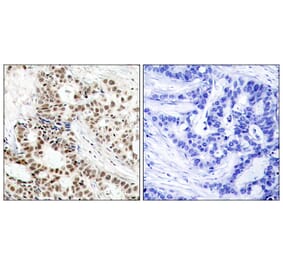
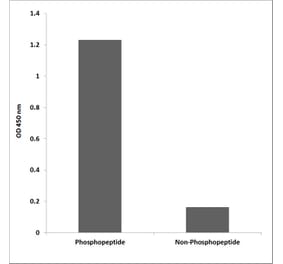
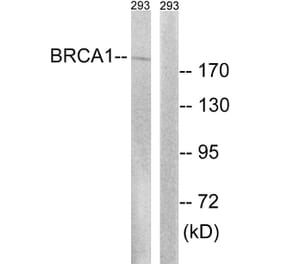
![Immunohistochemistry - Anti-BRCA1 Antibody [BRCA1/1398] - BSA and Azide free (A253234) - Antibodies.com](https://cdn.antibodies.com/image/catalog/253/A253234_1.jpg?profile=product_alternative)
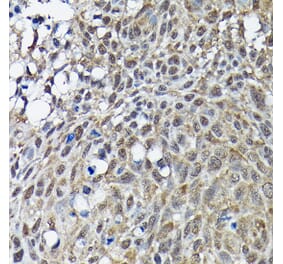
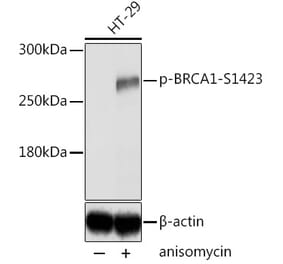
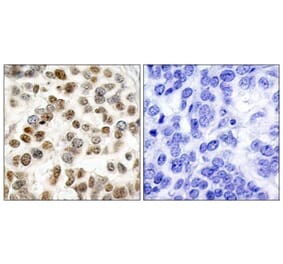
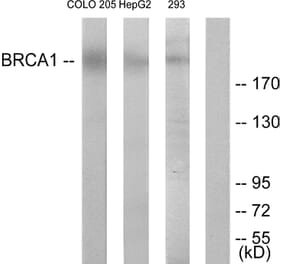

![Immunohistochemistry - Anti-BRCA1 Antibody [BRCA1/1398] (A250054) - Antibodies.com](https://cdn.antibodies.com/image/catalog/250/A250054_1.jpg?profile=product_alternative)